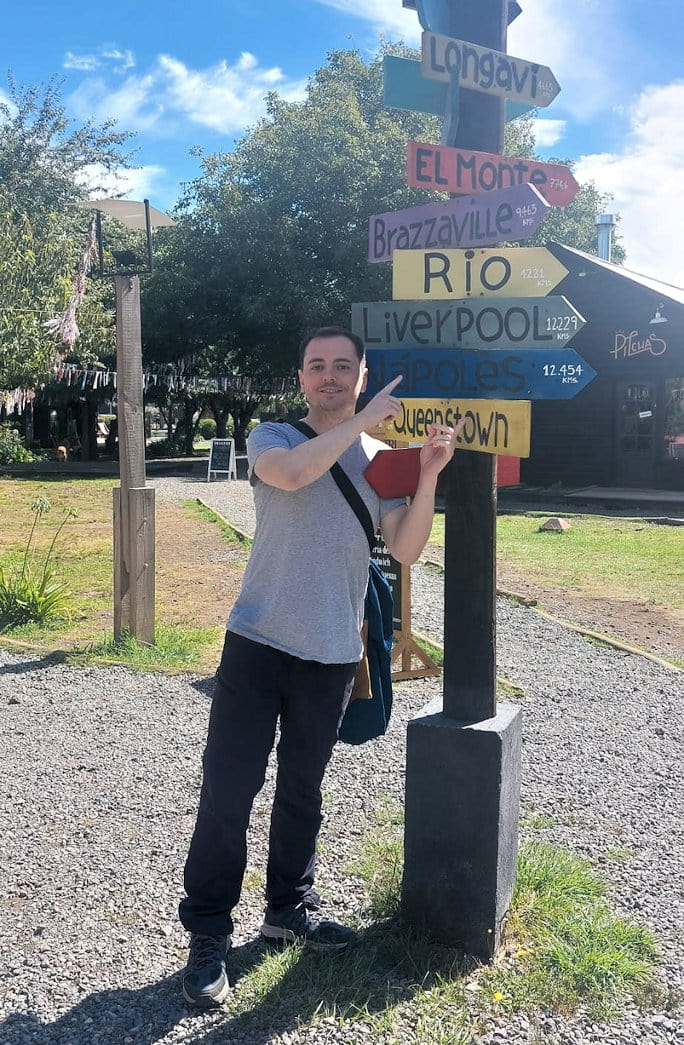
Dr Daniel Leybourne is a Research Fellow in the Department of Evolution, Ecology and Behaviour. He was recently invited to Chile to take part in an international plant science workshop, which focused on the challenge of agricultural pest control under drought. Here he tells us about his trip.
As global climate change intensifies, drought events are becoming more frequent and intense, posing a risk to cultivated vegetation and compromising global food security. Drought can alter the relationships of plants with other organisms, some of which, such as insect pests, pose threats to plant growth and development. Therefore, it is important to study whether plant interactions with pests are altered under drought.
I recently visited Chile having been invited to speak at an international workshop ’Pest control under drought - a new challenge to plant science on the horizon’. This journey began back in June 2022, when I received an email from a well-known, and prestigious, group of agricultural entomologists based in Chile.
Drought-plant-pest interactions and screening plant germplasm for improved resistance to pests or tolerance to drought were two key focal areas of my PhD, and towards the end of my PhD I had published an article that discussed plant-pest interactions in response to drought stress.
It was this article that piqued the interest of the Chilean team, led by Dr Claudio Ramirez and Dr Pedro Gundel at Universidad de Talca, and got them thinking about this challenge plants face.
International collaboration
En-route to the workshop I met-up with collaborator, and fellow workshop attendee, Dr Alison Karley (The James Hutton Institute). Despite our late night arrival in Santiago, we were met by our hosts and spent our day off exploring the city of Talca. The workshop kicked off on Monday with a visit to a local farm. We spent the morning speaking with farmers about Chilean agricultural practices, emerging challenges to the industry, and production strategies. We also tasted some recently harvested, and very delicious, watermelon. In the afternoon we were taken on a tour of the University’s labs and facilities.
Tuesday was set aside for research talks and scientific discussions. Over the course of the day it became clear that there were several complementary areas of ongoing research. In the evening, the students at the University presented their research in a poster session that proved to be engaging and thought-provoking. It was followed by a showcase of Chilean beer at a local bar!
The third day was set aside for discussions between the international partners, with an aim to further develop and strengthen our UK-Chile partnership by identifying how we can pool expertise and resources. In the afternoon Dr Karley and I discussed project ideas and funding proposals with PhD students and postdocs, an aspect of the trip I thoroughly enjoyed, and the day ended with the official workshop dinner.
Travelling south
Next we travelled south to the coastal city of Valdivia to meet with Claudio and Pedro’s collaborator Dr Anita Behn (Universidad Austral de Chile). Chile is a beautifully diverse country, and through the six-hour journey we saw the landscape change from hot and dry to luscious and temperate, with a ten-degree drop in temperature on the side. We visited Austral University where Dr Behn discussed their field work, research projects, and showed us the potato germplasm held at the University (a germplasm bank with >300 highly diverse varieties, including a delicious purple potato). The main focus of their research is to use this germplasm resource to identify beneficial traits that can help improve the resilience of this staple crop to environmental change.
On Saturday the workshop was officially concluded after breakfast and, following a brief mechanical hiccup with the hire car and a trip over the mountains, the work part of the trip ended at the foot of volcán Villarrica and the holiday began.
